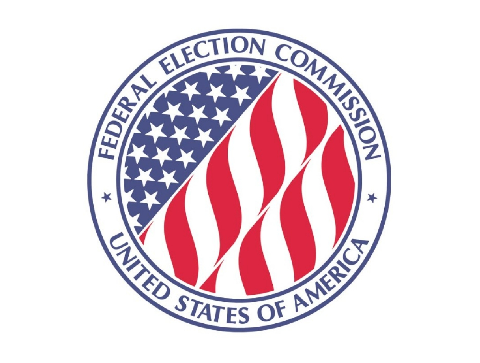On May 15, 2024, the Institute for Free Speech submitted comments to the Federal Election Commission in regards to the Agenda Document No. 24-19-A: Proposed Directive Concerning Requests to Withhold, Redact, or Modify Contributors’ Identifying Information.
Read a PDF of the comments here.
May 15, 2024
Federal Election Commission
1050 First Street, N.E.
Washington, D.C. 20463
RE: Agenda Document No. 24-19-A: Proposed Directive Concerning Requests to Withhold, Redact, or Modify Contributors’ Identifying Information
Dear Commissioners:
The Institute for Free Speech[1] submits this comment in support of Agenda Document 24-19-A, “Proposed Directive Concerning Requests to Withhold, Redact, or Modify Contributors’ Identifying Information,” with proposed modifications.
This proposal appropriately recognizes that donor disclosure is not a cost-free enterprise. A collateral consequence of required donor disclosure is that personal information is available on the internet to anyone—including people who may have ill intent, such as abusive exes, stalkers, jilted business rivals, criminals a donor has prosecuted, and others.[2] As the Socialist Workers’ Party case and subsequent exemption has long recognized, even in the political area, there may be circumstances where the threat of harassment and other harms associated with public donor disclosure outweighs the informational benefit. This proposal does a good job of providing a procedure to begin routinizing individualized determinations for when that is the case.
As written, this proposal is a big improvement over the ad hoc approach the Commission has taken to date with individualized requests. However, it would benefit from increased transparency. Specifically, the proposal appears to contemplate that all requests and Commission actions thereon would remain secret. This is likely contrary to federal law, which requires agencies to make final agency actions public, and creates a risk of actual or perceived disparities in how similarly situated requesters are treated. These concerns can and should be mitigated by clarifying how records of Commission decisions and justifications will be publicly released with appropriate redactions of personally identifiable information.
I. Disclosure is Not Cost Free
The Supreme Court has “repeatedly found that compelled disclosure, in itself, can seriously infringe on privacy of association and belief guaranteed by the First Amendment.”[3] Indeed, [i]t is undoubtedly true that public disclosure of contributions to candidates and political parties will deter some individuals who otherwise might contribute” and “[i]n some instances, disclosure may even expose contributors to harassment or retaliation.”[4]
When donor disclosure was first required, there was no widely available public internet. Public inspection and copying of reports meant going to a government office, asking to see a copy of a committee’s filing, and copying it by hand or mechanically. It was labor intensive process that was set up largely to track information about candidates and committees—not individual donors.
The rise of the internet changed that. Now, personal information, including a person’s name, address, and employer, is a mere click away, particularly as sites such as Open Secrets provide “Donor Lookup” tools to search for information by donor name.[5] As Justice Alito observed, “anyone with access to a computer could compile a wealth of information about all of those persons,” making “[t]he potential that such information could be used for harassment [] vast.”[6]
The potential consequences of disclosure are not limited to just uncomfortable or aggressive protests. It can have real economic consequences and lead to threats and actual violence.
These consequences are not limited to just politically motivated actions. Once a person’s information is publicly reported, it is available to everyone forever. This includes all manner of bad actors, such as domestic abusers, stalkers, criminals dissatisfied with a judge, prosecutor, or police officer involved in their investigation or arrest, all of whom may have a free online tool to find the home address of the person they are targeting. And information on the internet does not go away. A political contribution a decade ago—well before the circumstances giving rise to concern—may contain a person’s current address.
The result is that donor disclosure is not cost free. It inherently creates a risk that individuals will be targeted and harassed for their political views and thus chills the right to support candidates, parties, and political committees.[7] It also has the collateral consequence of facilitating bad actions that have no connection to politics.
In light of these negative consequences, it is past time for Congress to reconsider whether the making of a $200 contribution justifies the potential harms associated with public disclosure, particularly the public disclosure of a donor’s address. It is also past time for Congress to harmonize conduit reporting, which requires committees to report earmarked contributions of any amount, so that it matches other reporting of candidate contributions. To that end, we commend the Commission for its legislative recommendation that “Congress should amend FECA’s reporting requirement for conduit contributions to establish an itemization threshold consistent with other FECA reporting requirements.”[8]
Whether Congress acts or not on adjusting thresholds, a process is needed to provide an exemption for people who have a constitutional right to one. Until a rule can be drafted and adopted, this policy is a good first step to routinize individualized evaluations of whether the harms associated with compelled disclosure outweigh the governmental interests served.
II. The Commission’s Process for Evaluating Requests Should be Transparent
To address some of the negative consequences associated with compelled disclosure, the Court has long allowed for individualized as-applied exemptions “if a group could show a reasonable probability that disclosing its contributors’ names would subject them to threats, harassment, or reprisals from either Government officials or private parties.”[9]
The proposed directive is a good first step toward addressing individualized concerns associated with the public release of personal information. Even without changes, it would be a positive development to routinize something that appears to be happening on an ad hoc basis.
Even so, it can still be improved. Specifically, the proposed directive should be revised to specify that final decisions and the basis thereof are to be made public.
As written, the proposed directive appears to contemplate the entire request process taking place behind closed doors. To wit, the proposed directive states “[i]n all cases, regardless of outcome, the applications submitted pursuant to this Directive shall be kept confidential and shall not be placed on the public record” and provides for consideration of such requests in a non-public “executive session.” It does not contain any corresponding reference to making the Office of General Counsel’s tally vote recommendation or the Commission’s final action public.
This is problematic for several reasons. First, it appears to conflict with the agency’s legal obligation to make “final opinions, including concurring and dissenting opinions, as well as orders, made in the adjudication of cases” available for public inspection.[10] Commission regulations also provide that “[t]he Commission will make the fullest possible disclosure of records to the public” and “[a]ll Commission records shall be available to the public unless they are specifically exempt under this part.”[11]
Second, public disclosure is more consistent with the nature of the Commission’s actions. Whatever we may think about the propriety and necessity of the Commission’s current disclosure requirements, they are required under the law as written. The proposed directive creates an exception to the legal requirements that apply to everyone else. Such exceptions should be publicly justified.
Third, as a matter of policy, publicly justifying the Commission’s actions will minimize the risk of actual or perceived disparities in how similarly situated requesters are treated. While many requests are likely to be based on personal factors that have nothing to do with politics or their political views, others will not. Others are likely to be based on the risk of threats and harassment associated with their political position and views. It is imperative that the Commission treat—and the public perceive the Commission as treating—similar threats across the political spectrum similarly. The only way for that to happen is for the Commission to make its decisions and the basis for its decisions public.
Public justifications need not undermine the purpose of the request by revealing sensitive personal information. The Commission can and should redact personally identifiable information, including addresses, in any such request. But in doing so, it can and should release enough information for the public to understand why the Commission is taking or not taking the requested action and allow the public to compare like cases.
The easiest way to do this is likely to release redacted versions of the request and the Office of the General Counsel’s recommendation memorandum, particularly when OGC’s recommendation is approved. Alternatively, the Commission could approve and release a short factual and legal analysis that summarizes the operative facts and conclusions, similar to what the Commission does for matters under review. In neither case need the explanation be particularly long or burdensome; it need only provide enough information for the public to understand what happened and why.
III. Conclusion
Agenda Document 24-19-A, “Proposed Directive Concerning Requests to Withhold, Redact, or Modify Contributors’ Identifying Information,” is a good first step towards routinizing something that appears to be occurring on an ad hoc basis. Even without modification, it would be a positive development.
But it can be improved. Specifically, in order to meet the Commission’s legal obligations and prevent actual or perceived disparities in treatment of similarly situated requesters, the directive should specifically provide for the Commission to make its final decisions and justifications public.
Thank you very much for your time and consideration of our views.
Respectfully submitted,
Bradley A. Smith Gary Lawkowski
Chairman Senior Fellow
[1] The Institute for Free Speech is a nonpartisan, nonprofit 501(c)(3) organization that promotes and defends the First Amendment rights to freely speak, assemble, publish, and petition the government.
[2] We note that this proposal only addresses contributor information. Our understanding is that nothing in this proposal would impact disclosure of how candidates and committees are spending money.
[3] Buckley v. Valeo, 424 U.S. 1, 64 (1976).
[4] Id. at 68.
[5] See Donor Lookup, Open Secrets, https://www.opensecrets.org/donor-lookup. While Open Secrets does not report full donor addresses, it provides names, cities, recipient committees, and contribution dates, which can be used to find original reports on the FEC website.
[6] Doe v. Reed, 561 U.S. 186, 208 (2010) (Alito, J., concurring).
[7] See Buckley, 424 U.S. at 68 (“It is undoubtedly true that public disclosure of contributions to candidates and political parties will deter some individuals who otherwise might contribute”).
[8] See Legislative Recommendations 2023, Federal Election Commission (Dec. 14, 2023), https://www.fec.gov/resources/cms-content/documents/legrec2023.pdf.
[9] Citizens United v. FEC, 558 U.S. 310, 367 (2010) (cleaned up).
[10] 5 U.S.C. § 552(a)(2)(A).
[11] 11 C.F.R. §§ 4.2(a), (b).














